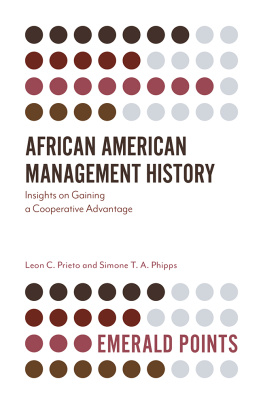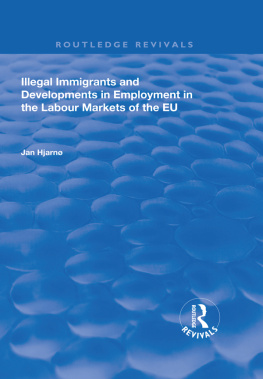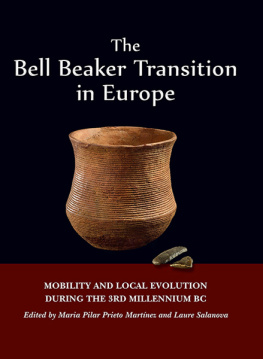Latina/o Sociology Series
General Editors: Pierrette Hondagneu-Sotelo and Victor M. Rios
Family Secrets: Stories of Incest and Sexual Violence in Mexico
Gloria Gonzlez-Lpez
Deported: Immigrant Policing, Disposable Labor, and Global Capitalism
Tanya Maria Golash-Boza
From Deportation to Prison: The Politics of Immigration Enforcement in Post-Civil Rights America
Patrisia Macas-Rojas
Cultural Guardians: Latinas in the Teaching Profession
Glenda M. Flores
Citizens but Not Americans: Race and Belonging among Latino Millennials
Nilda Flores-Gonzlez
Immigrants under Threat: Risk and Resistance in Deportation Nation
Greg Prieto
NEW YORK UNIVERSITY PRESS
New York
www.nyupress.org
2018 by New York University
All rights reserved
References to Internet websites (URLs) were accurate at the time of writing. Neither the author nor New York University Press is responsible for URLs that may have expired or changed since the manuscript was prepared.
Library of Congress Cataloging-in-Publication Data
Names: Prieto, Greg, author.
Title: Immigrants under threat : risk and resistance in deportation nation / Greg Prieto.
Description: New York : New York University Press, [2018] | Series: Latina/o sociology series | Includes bibliographical references and index.
Identifiers: LCCN 2017034391 | ISBN 9781479823925 (cl : alk. paper) | ISBN 9781479821464 (pb : alk. paper)
Subjects: LCSH: United StatesEmigration and immigrationGovernment policy. | MexicansGovernment policyUnited States. | Illegal aliensGovernment policyUnited States.
Classification: LCC JV6483 .P75 2018 | DDC 325.73dc23
LC record available at https://lccn.loc.gov/2017034391
New York University Press books are printed on acid-free paper, and their binding materials are chosen for strength and durability. We strive to use environmentally responsible suppliers and materials to the greatest extent possible in publishing our books.
Manufactured in the United States of America
10 9 8 7 6 5 4 3 2 1
Also available as an ebook
Agency, Action, and the Material Moorings of Immigrant Movements
La participacin es la unica cosa que nos va a salvar.
Esmeralda, primary informant
Power is everywhere, not because it embraces everything, but because it comes from everywhere.
Foucault, History of Sexuality
De-escalation, Nonparticipation, and Everyday Immigrant Politics
The immigrant rights marches of 2006 were a historic touchtone in the evolution of Latino and immigrant political power. What explains this oscillation? How do we make sense of Latino immigrants participation or lack thereof in these spectacular manifestations of collective resistance?
I think the answer lies in the everyday. Social movement organizing and the marches of 2006 are but the tip of the iceberg. These enormous displays of political power are both enabled and constrained by the material exigencies of immigrants everyday lives as low-wage laborers whose exploitation is sustained by the most extensive immigration enforcement regime in US history. The metaphor is meant to illustrate not the relationship of something small to something large, but rather the way that the submerged portion of the iceberg both anchors and buoys the visible tip. This necessary and daily work of sustaining self and family inspires a set of widely shared grievances that become fertile ground for collective action. To protect what material gains they have reaped, immigrants, as a matter of necessity, avoid and insulate themselves from local police, immigration enforcement, and the unfamiliar. They avoid risk to protect their gains. And yet, their risk aversion simultaneously forms a counterweight against participation in protest. Their first priorities remain family and work.
In this study of two Mexican immigrant communities on Californias Central Coast, the periodicity of immigration participation was a central dilemma for La Unin community organizers who sought to cultivate an immigrant political constituency. In both North City and South City, and their responsibility to act on their own behalves. And still, the action that emerged remained moored to the urgent material pressures of work and family.
Consider this exchange at the first La Unin house meeting that I attended just before the start of the new year in December 2011. The house meeting is a classic organizing strategy widely used during the farmworker struggle that began in the early 1960s and was led by the cofounders of the United Farmworkers (UFW), Dolores Huerta and Csar Chvez. The idea is simple: the activist asks a volunteer, friend, or family member to host a gathering at her home to which she invites neighbors, family, friends, and coworkers of her own. The community organizer will typically offer some combination of know-your-rights training and
Primary informant and La Unin volunteer organizer Esmeralda organized this first house meeting. Dissatisfied with dwindling attendance at La Unin meetings, she decided that we should go out into the community instead of asking the community to come to us. I met Esmeralda at Vickys home on the predominately Mexican eastside of South City. It was her daughters 18th birthday, and so Esmeralda decided to piggyback on the occasion by scheduling this house meeting at the start of the birthday party. When I arrive, Im greeted by a group of young girls, maybe 14 or 15 years old, who open the door and stare at me. I introduce myself as a friend of Esmeraldas here to meet our host Vicky. Of this group of four girls at the door, a young lady at the rear breaks an increasingly awkward silence by stepping forward and inviting me inside. As I move into the small living room, I am reminded that Christmas has just passed. A decorated Christmas tree stands in one corner. Two large couches are placed together in the shape of an L. An end table, bookshelves, and a television complete the living room furniture. In the kitchen around the corner, Esmeralda and her husband Ernesto are sitting at a dining table. Esmeralda introduces me to Vicky, who is busy making enchiladas for the party, serving them to us as they finish cooking, one plate at a time, so that we can eat before we begin the meeting.
As we eat and exchange pleasantries, Esmeralda peppers the young people in the room with questions. She asks a young man who is attending an alternative school about how things are going. He is clearly nervous, offering clipped responses. She isnt forceful though, signaling care and confidence. She commands the room by assuming the role of interlocutor.
As we finish our food, Esmeralda asks Ernesto and me to move chairs into a circle in the living room so that the other guests, adult neighbors and family members who are arriving, can sit. As people settle into the chairs that encircle the living room, Esmeralda begins the meeting by talking about why we are all here, turning first to the issue of car impoundments that has affected the immigrant community for quite some time. Esmeralda knows that having a car confiscated because they are undocumented and driving without a license, more than the fear of deportation, is the most common grievance in South City. She hooks the audience by leading with the topic she thinks will capture their attention. She also asks me to explain La Unins mission to support working-class and immigrant families by building political power and cultivating leaders from within the community.













